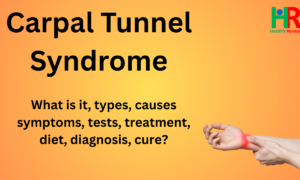What is Tinnitus?
Tinnitus is a condition when a person hears a ringing sound or a different variety of sound when no corresponding external sound is present and other people cannot hear it. Nearly everyone experiences faint “normal tinnitus” in a completely quiet room; but this is of concern only if it is bothersome, interferes with normal hearing, or is associated with other problems.
Definition of Tinnitus?
Tinnitus is the perception of sound when no corresponding external sound is present. It’s often described as a ringing in the ears, but it can also sound like buzzing, hissing, clicking, roaring, or whistling.
Types of Tinnitus?
· Subjective Tinnitus
· Objective Tinnitus
· Tonal Tinnitus
· Pulsatile Tinnitus
· Musical Tinnitus (Auditory Hallucinations)
· Clicking Tinnitus
Symptoms of Tinnitus?
· Difficulty Concentrating
· Sleep Disturbances (Insomnia)
· Hearing Difficulties
· Increased Sensitivity to Sound (Hyperacusis)
· Dizziness or Vertigo
· Anxiety and Irritability
· Depression
· Headaches
Causes of Tinnitus?
· Hearing-Related Issues
· Medical Conditions
· Medications
· Vascular Issues (Primarily for Objective Tinnitus)
· Muscle-Related Issues (Primarily for Objective Tinnitus)
· Stress and Anxiety
· Hormonal Changes
Who Can Suffer from Tinnitus?
Age: Tinnitus becomes more common with age, particularly in individuals over 60, due to age-related hearing loss (presbycusis).
Exposure to Loud Noise: This is a major risk factor. People who work in noisy environments (e.g., factory workers, construction workers, musicians, military personnel), those who frequently attend loud concerts or sporting events, and individuals who use power tools or firearms are at higher risk. Even prolonged use of headphones at high volumes can contribute.
Hearing Loss: Tinnitus is often associated with hearing loss of any kind, whether it’s noise-induced, age-related, or caused by other factors. However, some people with hearing loss never develop tinnitus.
Sex: Men are slightly more likely to experience tinnitus than women, according to some studies. However, other research suggests women may be more severely affected by it.
Diagnostic Tests of Tinnitus?
· Medical History and Physical Examination
· Audiological Evaluation (Hearing Test)
· Tinnitus Evaluation (Tinnitus Matching)
· Imaging Tests (If Suspected Underlying Medical Condition)
· Blood Tests (If Suspected Underlying Medical Condition)
· Auditory Brainstem Response (ABR)
· Electrocochleography (ECochG)
Stages of Tinnitus?
· Initial Onset
· Increased Frequency or Persistence
· Increased Loudness
· Habituation
· Increased Impact on Quality of Life
Treatment of Tinnitus?
· Addressing Underlying Medical Conditions
· Hearing Aids
· Sound Therapy
· Tinnitus Retraining Therapy (TRT)
· Cognitive Behavioral Therapy (CBT) and Counseling
· Tinnitus Activities Monitoring (TAM)
· Medications (Limited Role)
· Alternative Therapies (Limited Evidence)
· Implantable Devices (In Specific Cases)
Best Diet for Tinnitus?
· Potassium-Rich Foods
· Magnesium-Rich Foods
· Zinc-Rich Foods
· Vitamin B12-Rich Foods
· Antioxidant-Rich Foods
· Omega-3 Fatty Acids
· Fiber-Rich Foods
· Dairy
· Fruits
Prevention of Tinnitus?
· Protect Your Hearing from Loud Noise
· Manage Your Cardiovascular Health
· Practice Good Ear Care
· Manage Stress and Anxiety
· Be Mindful of Medications
· Maintain a Healthy Lifestyle
· Regular Hearing Checkups
Overall Survival Rate of Tinnitus?
The overall survival rate for individuals with tinnitus is a complex issue, and it’s crucial to understand that tinnitus itself is not typically a direct cause of death.
Which Doctor Treats Tinnitus?
· Audiologist
· Otolaryngologist (ENT Doctor)
Diseases Associated with Tinnitus?
· Hearing Loss
· Ear Infections (Otitis Media and Externa)
· Earwax Blockage
· Otosclerosis
· Acoustic Trauma
· Eustachian Tube Dysfunction
· Superior Semicircular Canal Dehiscence (SSCD)
· Multiple Sclerosis
· Stroke
· Traumatic Brain Injury (TBI)
· Migraines
· High Blood Pressure (Hypertension)
· Atherosclerosis
· Vascular Malformations
· Anemi
· Thyroid Disorders
· Diabetes
· Autoimmune Disorders




